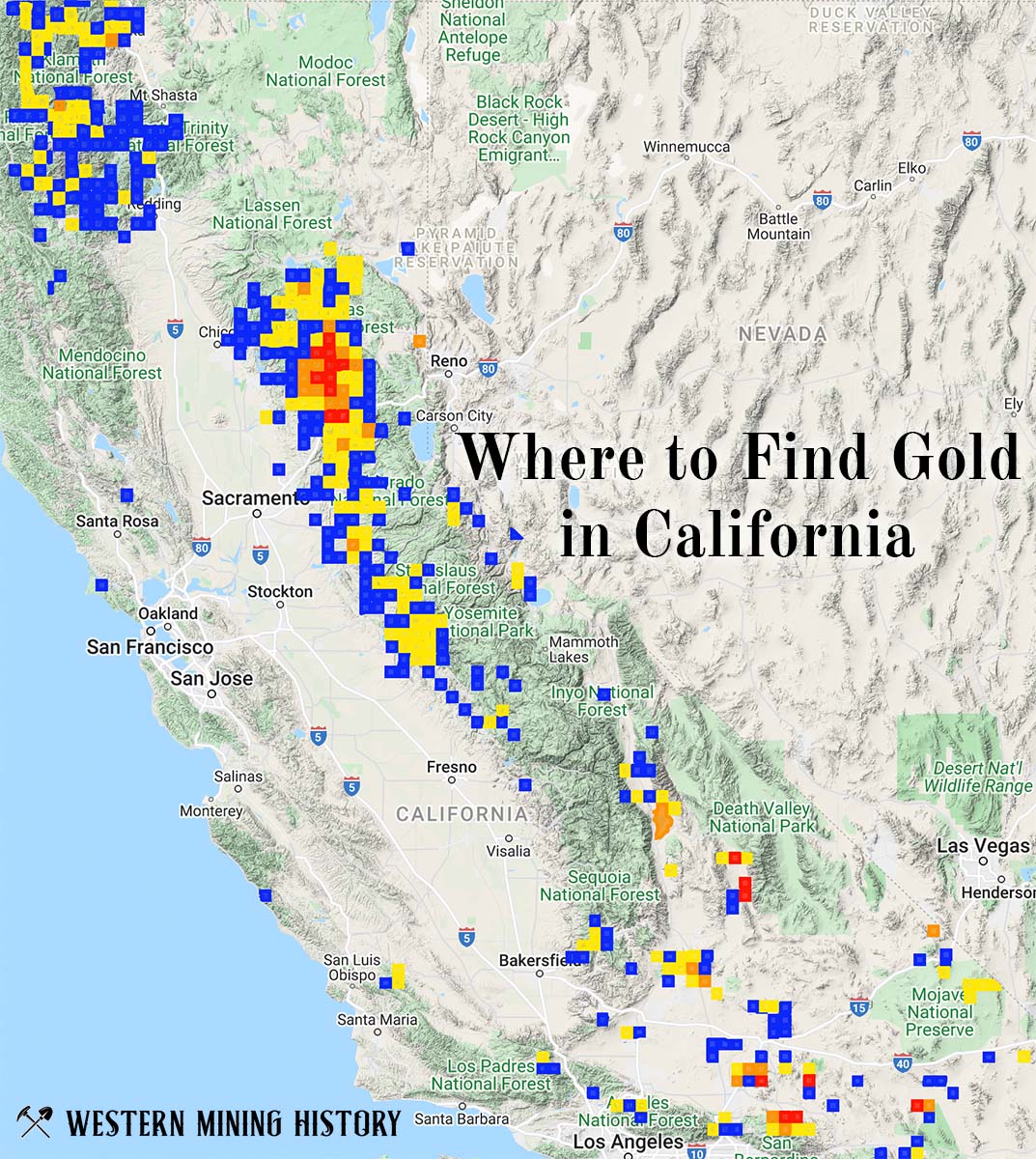The Cambria Mine is a mercury mine located in San Luis Obispo county, California at an elevation of 1,020 feet.
About the MRDS Data:
All mine locations were obtained from the USGS Mineral Resources Data System. The locations and other information in this database have not been verified for accuracy. It should be assumed that all mines are on private property.
Mine Info
Elevation: 1,020 Feet (311 Meters)
Commodity: Mercury
Lat, Long: 35.6339, -121.06310
Map: View on Google Maps
Cambria Mine MRDS details
Site Name
Primary: Cambria Mine
Secondary: Bank Mine
Secondary: Red Hill Workings
Secondary: La Trinidad Mine
Commodity
Primary: Mercury
Location
State: California
County: San Luis Obispo
Land Status
Land ownership: Private
Note: the land ownership field only identifies whether the area the mine is in is generally on public lands like Forest Service or BLM land, or if it is in an area that is generally private property. It does not definitively identify property status, nor does it indicate claim status or whether an area is open to prospecting. Always respect private property.
Holdings
Not available
Workings
Not available
Ownership
Not available
Production
Not available
Deposit
Record Type: Site
Operation Category: Past Producer
Operation Type: Surface-Underground
Mining Method: Unknown
Years of Production:
Organization:
Significant: N
Deposit Size: S
Physiography
General Physiographic Area: Pacific Mountain System
Physiographic Province: Pacific Border Province
Physiographic Section: California Coast Ranges
Mineral Deposit Model
Not available
Orebody
Not available
Structure
Not available
Alterations
Not available
Rocks
Not available
Analytical Data
Not available
Materials
Not available
Comments
Comment (Environmental Factors): IN FEBRUARY 1992, SAMPLES WERE TAKEN IN THE CAMBRIA MINE TRIBUTARY, IN SAN SIMEON CREEK ABOVE THE TRIBUTARY, AND IN SAN SIMEON CREEK BELOW THE TRIBUTARY. WATER SAMPLED IN THE CAMBRIA MINE AND ASSOCIATED MINES TRIBUTARY CONTAINED MORE CARBONATE, CALCIUM CARBONATE, BICARBONATE, MAGNESIUM, SULFATE, TOTAL IRON, TOTAL CHROMIUM, TOTAL MERCURY, AND TOTAL NICKEL THAN THE OTHER TWO SAMPLES. SEDIMENT SAMPLES CONTAINED MORE MERCURY, IRON, NICKEL, AND CHROMIUM. THESE ELEVATED CONSTITUENTS APPEAR MINE RELATED. THE SAN SIMEON CREEK SAMPLE BELOW THE CAMBRIA MINE TRIBUTARY CONTAINED MORE TOTAL FILTERABLE RESIDUE AND SULFATE THAN IN THE SAN SIMEON CREEK SAMPLE COLLECTED ABOVE THE CAMBRIA MINE TRIBUTARY. SEDIMENT COLLECTED BELOW THE CONFLUENCE OF THE TRIBUTARY CONTAINED MORE IRON, MERCURY, AND NICKEL THAN SEDIMENT FROM ABOVE THE CONFLUENCE. THESE ELEVATED CONSTITUTENTS ALSO APPEAR MINE RELATED. SEDIMENT COLLECTED IN THE SAN SIMEON CREEK ABOVE THE CAMBRIA MINE TRIBUTARY CONTAINED MORE TOTAL FILTERABLE RESIDUE AND SULFATE THAN IN THE SAN SIMEON CREEK SAMPLE COLLETEC ABOVE THE CAMBRIA MINE TRIBUTARY. SEDIMENT COLLECTED BELOW THE CONFLUENCE OF THE TRIBUTARY CONTAINED MORE IRON, MERCURY, AND NICKEL THAN SEDIMENT FROM ABOVE THE CONFLUENCE. THESE ELEVATED CONSTITUTENTS ALSO APPEAR MINE RELATED. SEDIMENT COLLECTED IN THE SAN SIMEON CREEK ABOVE THE CAMBRIA TRIBUTARY CONTAINED ELEVATED ANTIMONY, ARSENIC, AND LEAD, INDICATING AN UPSTREAM SOURCE (POSSIBLY THE HAMILTON MINE).
References
Reference (Deposit): U.S. BUREAU OF MINES IC 8252, 1965, P. 196.
Reference (Deposit): CALIFORNIA REGIONAL WATER QUALITY CONTROL BOARD, CENTRAL
Reference (Deposit): COAST REGION. SURFACE WATER DEGRADATION BY INACTIVE
Reference (Deposit): METAL MINES IN NORTHWEST SAN LUIS OBISPO COUNTY, CA,
Reference (Deposit): DECEMBER 1993 (P. 11-12).
Reference (Deposit): CALIF. JOUR. MINES AND GEOL., V. 35, 1939, P. 431.
Reference (Deposit): U.S. GEOLOGICAL SURVEY BULLETIN 922-R, 1941, P. 551-553.
California Gold

"Where to Find Gold in California" looks at the density of modern placer mining claims along with historical gold mining locations and mining district descriptions to determine areas of high gold discovery potential in California. Read more: Where to Find Gold in California.